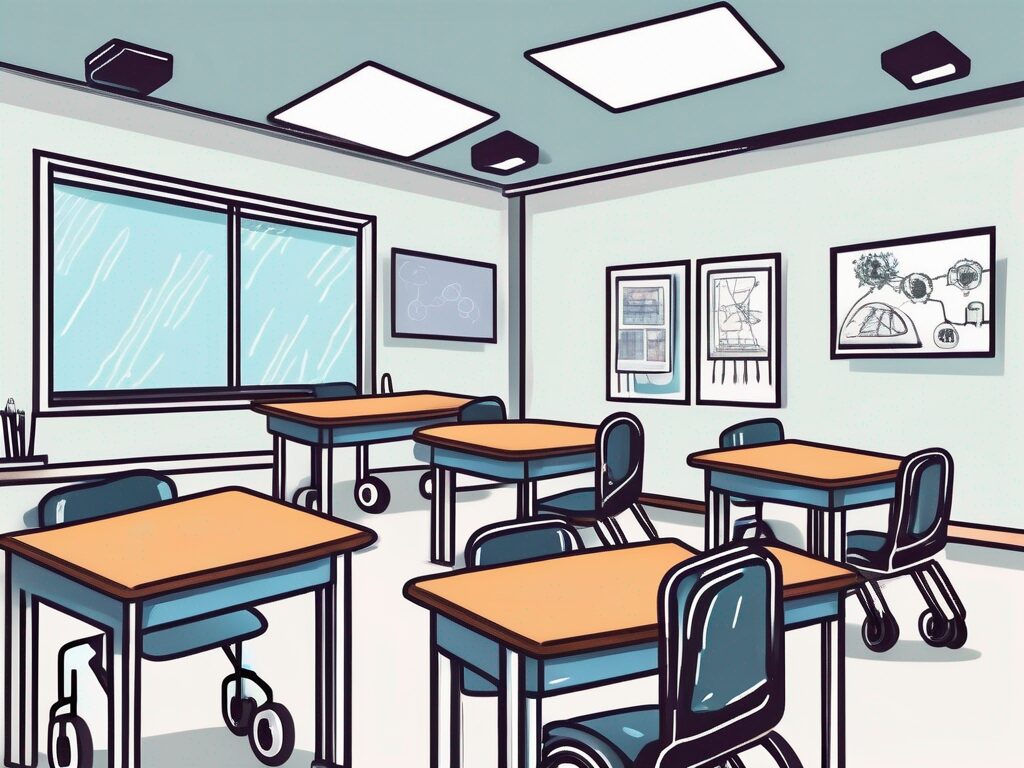In the realm of education, understanding the needs of every student is paramount. This is especially true for those with special educational needs (SEN). In Malaysia, the approach to SEN has evolved significantly over the years, with a growing emphasis on inclusivity and personalised learning. This article delves into six key points about SEN in Malaysia, exploring the current landscape, the challenges faced, and the steps being taken to improve the situation.
1. Understanding Special Education Needs (SEN)
What is SEN?
Special Education Needs, often abbreviated to SEN, refers to the additional support required by children who have learning difficulties or disabilities that make it harder for them to learn compared to other children of the same age. These needs can range from mild learning difficulties to severe, complex disabilities.
SEN in the Malaysian Context
In Malaysia, SEN is often associated with children who have difficulties in areas such as communication, physical development, and cognitive skills. This includes children with autism, Down syndrome, dyslexia, and other conditions. The Malaysian education system recognises these needs and has implemented various initiatives to cater to these students.
2. The Current Landscape of SEN in Malaysia
The Inclusive Education Programme
One of the key initiatives in Malaysia is the Inclusive Education Programme (IEP). Launched in 1997, the IEP aims to integrate students with SEN into mainstream schools. The idea is to provide these students with the opportunity to learn alongside their peers, fostering a sense of belonging and promoting social integration.
Special Education Integration Programme
Another significant initiative is the Special Education Integration Programme (SEIP). This programme focuses on providing additional support to students with SEN in mainstream schools. This includes specialised teaching methods, learning materials, and additional resources to help these students thrive.
3. Challenges Faced in SEN Education
Lack of Resources
Despite these initiatives, there are still challenges to be addressed. One of the main issues is the lack of resources. This includes both physical resources, such as specialised equipment and facilities, and human resources, such as trained teachers and support staff. The lack of resources can hinder the effectiveness of SEN programmes and limit the progress of students with SEN.
Social Stigma
Another challenge is the social stigma associated with SEN. Many people in Malaysia still have misconceptions about SEN, leading to discrimination and exclusion. This can have a negative impact on the self-esteem and mental health of students with SEN, and can also discourage parents from seeking help for their children.
4. Steps Towards Improvement
Increasing Awareness
One of the key steps towards improving the situation is increasing awareness about SEN. This includes educating the public about the nature of SEN, the challenges faced by students with SEN, and the importance of inclusivity. By increasing awareness, we can help to reduce the stigma associated with SEN and promote a more inclusive society.
Improving Resources
Another important step is improving the resources available for SEN education. This includes investing in specialised equipment and facilities, as well as training more teachers and support staff. By improving resources, we can enhance the quality of SEN education and help students with SEN to reach their full potential.
5. The Role of Parents and the Community
Parental Involvement
Parents play a crucial role in the education of children with SEN. They are often the first to notice any learning difficulties or disabilities, and their support and understanding can make a significant difference in the child’s educational journey. Parents can also advocate for their child’s needs and work closely with schools to ensure that their child receives the necessary support.
Community Support
The community also plays a vital role in supporting students with SEN. This includes neighbours, friends, local businesses, and community organisations. By fostering a supportive and inclusive community, we can help to create a positive environment for students with SEN and promote their social integration.
6. The Future of SEN in Malaysia
Continued Progress
While there are still challenges to be addressed, the future of SEN in Malaysia looks promising. With continued efforts to increase awareness, improve resources, and promote inclusivity, we can expect to see continued progress in the field of SEN education.
Embracing Diversity
Ultimately, the goal is to create an education system that embraces diversity and caters to the needs of all students. By recognising and addressing the needs of students with SEN, we can help to ensure that every child in Malaysia has the opportunity to learn, grow, and thrive.
Empower Your SEN Teaching Capabilities with IPGCE
As we strive to foster an inclusive educational environment for students with Special Education Needs in Malaysia, the role of skilled and qualified educators becomes ever more crucial. IPGCE is dedicated to supporting teachers in enhancing their qualifications and understanding of diverse learning needs. By joining the UK’s #1 Teacher Training Course, you not only elevate your credentials but also unlock new career opportunities, connect with a global network of professionals, and gain invaluable insights into international curricula. Embrace the chance to make a significant impact on your students’ lives and your professional journey. Join the UK’s #1 Teacher Training Course today and be the change you wish to see in the world of education.

